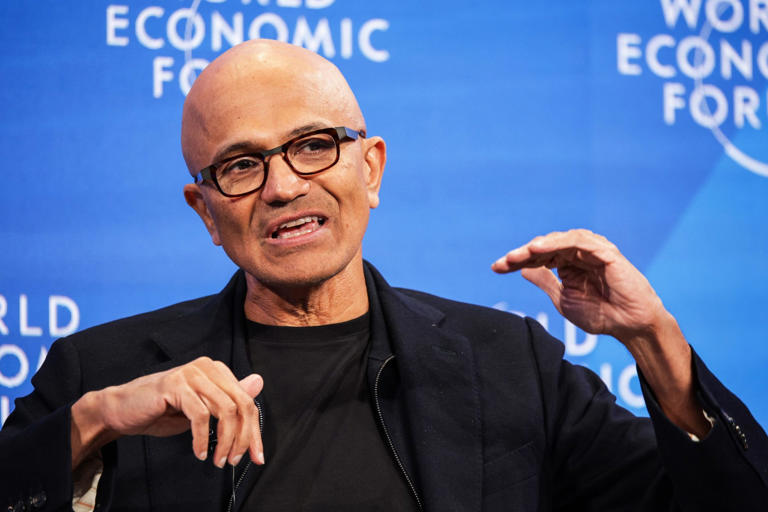Microsoft’s robust investment in artificial intelligence (AI) infrastructure has propelled it to the forefront of the industry, earning accolades from analysts and investors alike. The company’s recent quarterly earnings report served as a testament to the success of its AI strategy, prompting a notable surge in stock value and widespread commendation from industry experts.
However, despite Microsoft’s substantial commitments to data centers, chips, talent acquisition, and other AI-related infrastructure, a significant barrier to its AI dominance persists: the necessity for a cultural shift among its business clientele. During the earnings call, CEO Satya Nadella underscored this imperative, emphasizing the need for companies to embrace change and adapt their operational paradigms to seamlessly integrate AI technologies.
The implementation of AI tools like Microsoft’s Copilot and Azure AI often entails a fundamental reimagining of established workflows and practices—a challenge that demands not only technological innovation but also a profound transformation in organizational culture. Nadella emphasized that Microsoft itself is undergoing this cultural metamorphosis, demonstrating the company’s commitment to leading by example in this regard.
Analysts regard Microsoft as exceptionally well-positioned in the AI landscape, owing to its robust cloud computing business and strategic partnerships, such as its collaboration with OpenAI, the creator of ChatGPT. However, the ultimate success of Microsoft’s AI investments hinges on widespread adoption by everyday workers—an endeavor that pits the company against deeply ingrained human behavior patterns and workplace norms.
While effecting change in entrenched work habits poses a formidable challenge, Microsoft has observed promising signs of adaptability, particularly in the aftermath of the COVID-19 pandemic. The rapid transition to remote work compelled employees to embrace new technologies, laying the groundwork for greater acceptance of AI solutions in the workplace. Leveraging insights into human behavior, Microsoft has refined its AI technology and cultivated champions within customer organizations to advocate for the adoption of AI tools.
Nadella likened the ongoing cultural shift driven by AI to the transformative impact of personal computers in the 1990s, acknowledging that change takes time but is progressing at an accelerated pace. The company’s efforts to promote Copilot and other AI offerings are yielding results, with adoption rates surpassing those of previous software suites.
In its most recent earnings report, Microsoft reported robust growth across its business segments, with Azure’s revenue expanding by 31% year-over-year, driven in part by increased demand for AI products. Company-wide revenue and profits also saw substantial gains, reflecting the success of Microsoft’s diversified business model.
Despite the positive earnings report, Microsoft remains focused on further advancing its AI capabilities and driving widespread adoption of its technology. As the company continues to invest in AI infrastructure and foster a culture of innovation, it aims to solidify its position as a leading player in the rapidly evolving AI landscape.
